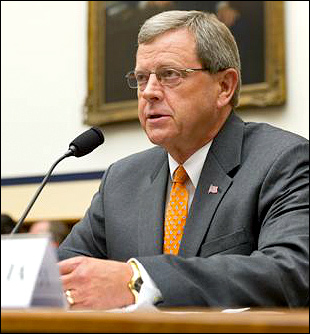Rep. Tom Latham (R-IA-3) announced yesterday that he will not seek the open Iowa Senate seat next year. His decision is not particularly surprising. Iowa insiders had been indicating for more than a week that the 10-term congressman was leaning against launching a statewide bid.
In publicizing his decision, Latham indicated that he had just been re-elected to the House in a much different post-redistricting CD — in fact, 83 percent of the constituents are new to him — and a two-year statewide campaign would take him away from properly fulfilling his current responsibilities.
Politically, though he was commonly seen as the best general election candidate the Republicans could field, he faced a major obstacle in the GOP primary. Rep. Steve King (R-IA-4), fresh from his own convincing re-election victory over a strong and well-known Democratic opponent, commands the inside track to the Senate nomination. King is backed with vigorous Tea Party support and enjoys strong grassroots presence for his Republican nomination campaign, which are major factors.
Late January and early February polling provided us a quick glimpse into how the Continue reading >


